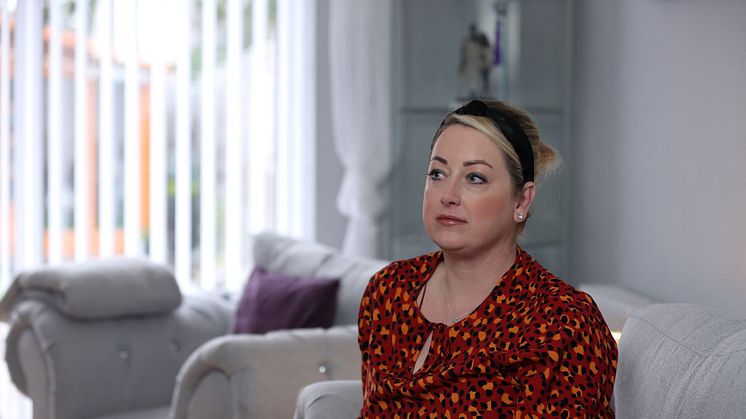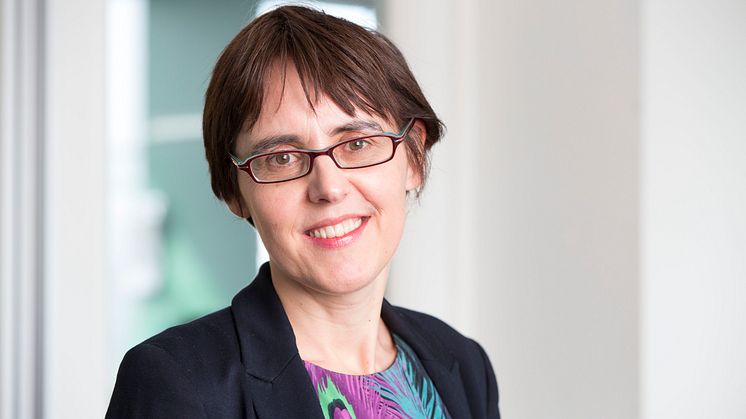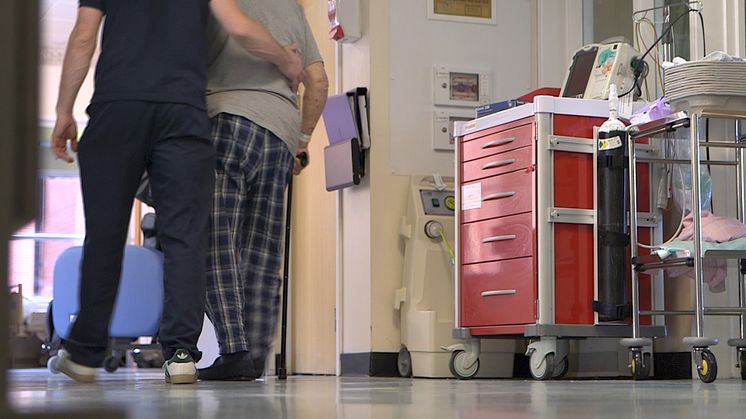
Press release -
Postcode lottery leaves North West stroke survivors deserted after leaving hospital
Shocking new figures reveal huge differences in the support available for stroke survivors across the UK when they leave hospital. Northern Ireland props up the bottom of the league table(i) as the area with the least amount of support available for local populations.
This World Stroke Day, the Stroke Association publishes new findings(ii) that show that 53% of stroke survivors in the North West did not feel that they received enough support with their recovery after leaving hospital. This is in stark comparison with stroke survivors in the East Midlands where almost two-thirds (60%) of people say they received enough support. These findings illustrate a wide gap between regions in providing rehabilitation and support after stroke.
There are currently 1.2 million stroke survivors in the UK, and these latest findings show that many people feel let down by the health and social care system. The charity’s Lived Experience report is compiled from a large survey of people affected by stroke to find out more about their experiences. The charity has previously published findings on the hidden effects of stroke, the financial impact of stroke and the experience of carers. This final chapter, Rebuilding lives after stroke, reveals that across the UK:
- Seven out of ten (70%) stroke survivors had problems with speech and communication and more than three quarters (77%) had problems with mobility. Despite this, a third (29%) of people feel that they did not get enough support to learn how to speak again and four in ten (40%) said they needed more physiotherapy.
- A third of survivors (28%) feel that they are not getting the support required for their daily needs to re-learn skills such as getting dressed and feeding themselves.
- Stroke survivors are taking their first steps alone: nearly a quarter (22%) of stroke survivors feel the care they received after leaving hospital did not help them cope.
Emma Raven was 33 years old when she had a stroke in August 2014, just days after she found out she was pregnant following three years of trying for a baby and a successful round of IVF. She was at work as a pharmacy dispensing assistant when she suddenly became ill and was rushed to hospital where doctors found that a bleed on her brain had caused her to have a stroke.
Initially scans indicated that her baby was unharmed, but a couple of weeks later she miscarried. Emma’s stroke also left her with several long-term disabilities. Her vision and balance were severely affected and it caused a condition called aphasia, which affects her ability to speak, read and write. She was not able return to work and found coping with social situations a big challenge.
Emma said: ‘It was just devastating, we had been trying for a baby for so long. There are no words to describe what it was like, we were more than heartbroken. The stroke also made me a different person. I lost my confidence and I did not want to go out.”
Emma was initially taken to Fazakerley Hospital but quickly transferred to Walton Neuro Hospital. When she left hospital, Emma was not referred to any Early Supported Discharge and had no support from the Stroke Association due to there being no referral pathway at Walton. It took weeks of calls from Emma’s family to get any speech and language input. Emma said: “I didn’t get the right access to the support I needed. I didn’t have access to any therapy or anything. I only had my family for support.”

Emma worked hard to adjust to her disabilities with the support of her family, particularly her mother Jan, and Stroke Association staff and groups.
Her husband Paul kept her motivated: “When we married we promised to be there in sickness and in health. I know people whose partners have left them after a stroke, but Paul was always there encouraging me.”
In an effort to become more comfortable with meeting and talking to people again, Emma started attending the Stroke Association’s Merseyside Life After Stroke Group. Making friends with other stroke survivors, she decided that she wanted to do more to raise awareness of the charity and the condition. One of her first challenges was to raise funds doing a 150 foot abseil down the face of Liverpool’s Anglican Cathedral.
Emma said: “It was terrifying but it was a very proud moment for me, probably one of the things I’m most proud of since my stroke. Doing it gave me the courage to take on other challenges. The support from the Stroke Association has given me a lifeline to live independently.”
Juliet Bouverie, Chief Executive of the Stroke Association, said: “Stroke happens in the brain, the control centre for who we are and what we can do. It changes lives in an instant, robbing many stroke survivors of their mobility, their speech and often their independence. We know there are hospitals, stroke units and dedicated stroke professionals leading the way for stroke rehabilitation up and down the UK.
“But there are still thousands of stroke survivors being let down by the health and social care system when they leave hospital, because of a postcode lottery that needs to be overcome. This is putting people’s recoveries at risk. Surviving a stroke is the first challenge; recovery is tough, but it is more likely when stroke survivors can access the full range of support services they need, and deserve, to rebuild their lives after stroke.”
The Lived Experience of Stroke report also exposes the realities of living with stroke:
- One in four (26%) stroke survivors report not receiving enough emotional support leaving them struggling to cope.
- One in three (31%) stroke survivors feel their support focused on their medical condition and not them as a person.
- Over half (51%) of stroke survivors who also had other health conditions feel there was more support available for these other conditions than for their stroke.
Juliet continues: “I know it takes a lot of effort and determination to keep going with rehabilitation after a stroke. But with the right specialist support and a ton of courage and determination, the brain can adapt. Even months and years after a stroke, it’s possible to make a recovery.
“We want everyone affected by stroke to have access to the support they are entitled to as laid out by the national clinical guideline for stroke. Thanks to the last National Stroke Strategy we have seen drastic improvements in hospital stroke care in England. Other UK Nations are also taking steps forward in hospital-based stroke services. Now, the same priority must urgently be given to rehabilitation and long-term support, no matter where you live. No stroke survivor should be denied the chance to rebuild their life.”
“We’re here for everyone affected by stroke. We offer vital support and information through our Stroke Helpline and My Stroke Guide, our online community of over 11,000 people affected by stroke. I’d also encourage all stroke survivors to refer to the patient-friendly version of the national clinical guideline that we developed with the Royal College of Physicians (www.stroke.org.uk/stroke-care) so that they know their rights to rehabilitation and ongoing support.”
Marion Walker MBE, Professor of Stroke Rehabilitation at the University of Nottingham, said: “All too often we hear of individuals being discharged from hospital into a vacuum of care, knowing little of the available services or how to access them. However, we now know there is much that can be done to support stroke survivors’ recoveries. We know our health care system has severe financial restrictions but we need to find creative ways to ensure stroke survivors have the necessary professional help they need. I have seen the benefits of good stroke services and want all families touched by stroke to have the best care possible.”
The Stroke Helpline (0303 3033 100) offers information and support to people who have been affected by stroke. For more information about the Lived Experience of Stroke report – Rebuilding lives after stroke - visit www.stroke.org.uk/livedexperience
Topics
Categories
- Stroke strikes every five minutes in the UK and it changes lives in an instant.
- The Stroke Association is a charity working across the UK to support people to rebuild their lives after stroke. We believe that everyone deserves to live the best life they can after stroke. From local support services and groups, to online information and support, anyone affected by stroke can visit stroke.org.uk or call our dedicated Stroke Helpline on 0303 3033 100 to find out about support available locally.
- Our specialist support, research and campaigning are only possible with the courage and determination of the stroke community and the generosity of our supporters. With more donations and support, we can help rebuild even more lives.
- You can follow us on Twitter, Facebook and Instagram.



